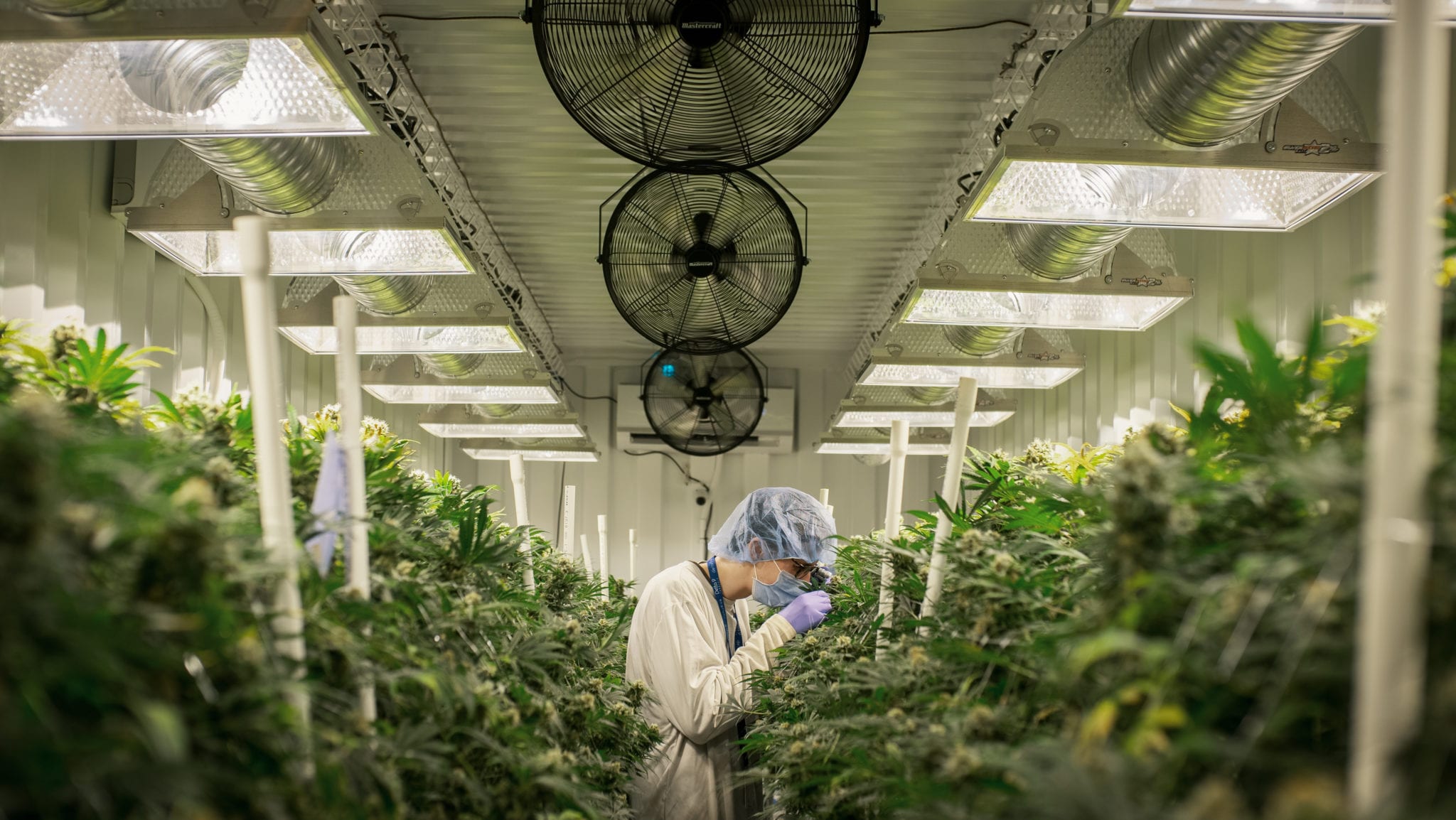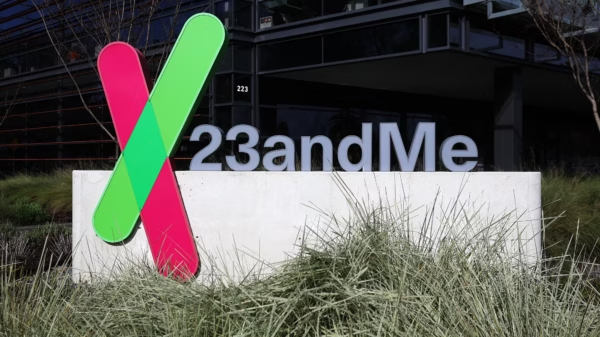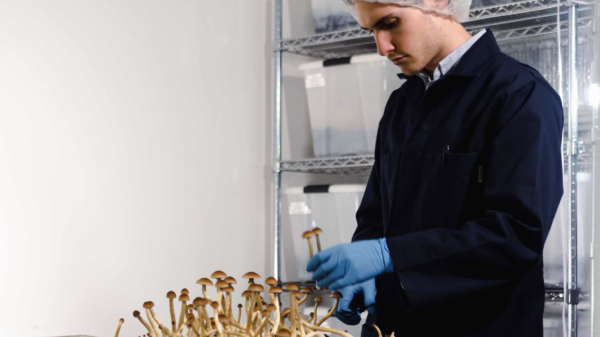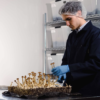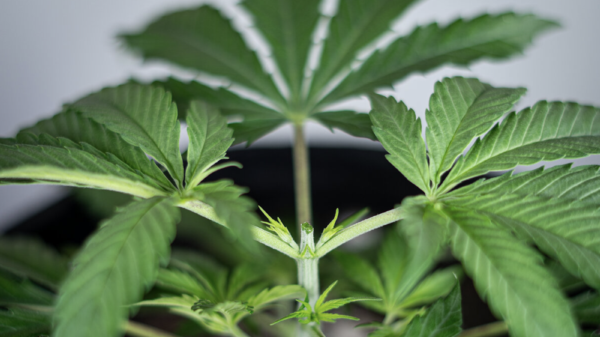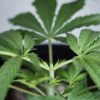Believe it or not, amid the global COVID-19 chaos there are companies continuing to operate with a hint of normality — Delta 9 Cannabis Inc. (TSX: DN) appears to be one of them.
The producer, retailer and business-to-business services provider posted its Q4 2019 and year-end financial results yesterday evening.
A profitable quarter is a milestone for Delta 9, who operates in Manitoba where the impact of the novel coronavirus has been much lower than other, more metropolitan provinces. As of publication time, the province had reported only 17 out of Canada’s 1,077 confirmed cases.
From our interview with CEO John Arbuthnot below, you’ll get a sense of just how different things can be in areas less affected by international travel.
Read more: COVID-19 pandemic puts Canadian cannabis operations in limbo
Among the company’s financial highlights are revenues of $10.6 million for the fourth quarter of 2019, up 59 per cent from $6.7 million in the previous quarter and up 101 per cent from $5.3 million in the same quarter last year.
Delta 9 also reported its adjusted earnings before interest, taxes, depreciation and amortization (EBITDA) loss improved 89 per cent to a loss of $91,760 in the fourth quarter 2019 compared to a loss of $849,760 in the previous quarter.
The company ended the quarter with a reported $22.8 million cash in hand.
This morning, Delta 9’s CEO talked to Mugglehead about how his company’s diversified business model has spelled success in the long-run; how its B2B grow pod segment has plans to move beyond Canadian borders; and how companies through this cycle will start to trade at multiples of revenue, earnings and EBITDA more so than we’ve ever seen.

Delta 9 CEO John Arbuthnot. All photos via Delta 9
So what’s your personal situation right now? Are you are you locked down at your house?
We’re in Manitoba so actually we haven’t seen a huge number of cases here.
The vast majority of our corporate head office is working remote or working from home. There’s still five or six of us who are making it into the office every day. But our production facilities are still running. Obviously we’re facing challenges around staffing, but haven’t seen any disruptions in our production or wholesale business. At least, to date, our retail stores remain open. We’re actually seeing, if anything, increased foot traffic and increased average carts. I don’t want to say cannabis is quite like the toilet paper situation, but people do appear to be stocking up.
Right? Yeah, it’s exactly what everyone’s been seeing. Okay, so first off, some good news: You guys posted quarterly revenues slightly ahead of projections. And experienced your first profitable quarter. So that’s got to feel good.
Absolutely. I mean, we’re really looking to highlight significant increases year-over-year: A little over 100 per cent growth in top line revenue for the fourth quarter versus the previous year, with 60 per cent growth from our third quarter. It’s a very healthy increase in revenue into the fourth quarter led by the strength in our retail and business-to-business segments.
Read more: Consumers and companies embrace cannabis retail rush before expected mass shutdown
It’s the first quarter of positive operating income in the company’s history. So it’s obviously a notable milestone for us. As well the company essentially reached adjusted EBITDA neutral. The adjusted EBITDA loss was less than $100,000 for the fourth quarter. That’s an improvement from an adjusted EBITDA loss of about $850,000 in the third quarter. So, again, quite positive movement both year-over-year and over the sequential quarter.
Especially before the current crisis, there was a huge downturn in the cannabis market and a lot of people scrambling for answers, especially on the investor side. But you guys have done well. What do you attribute your success to?
I think a lot of it comes from a diversified revenue strategy. You know, as much as we point to the strengths in our retail and B2B segments in the fourth quarter, we also experienced challenges in our wholesale business.
Now we’ve been generally guiding the market and analysts expect a pretty good rebound in terms of our wholesale business in the first quarter 2020. We’re pivoting towards higher potency flower products, we’re introducing new product lines that we feel will be competitive, we’ve repriced all of our products to ensure they’re competitive across our provincial markets. So certainly anticipating a rebound.
But really what we’ve done to see the success over the last few quarters is our diversified approach, where if there are challenges or setbacks in any one of our business units, we have these alternative businesses and revenue streams to rely on and see growth. So, when you look at the uncertainty in the rollout of the cannabis space — whether that’s the retail, extraction or the production and wholesale verticals, again, that diversified approach gives us the flexibility to overcome these challenges and continue to produce growth in our numbers.
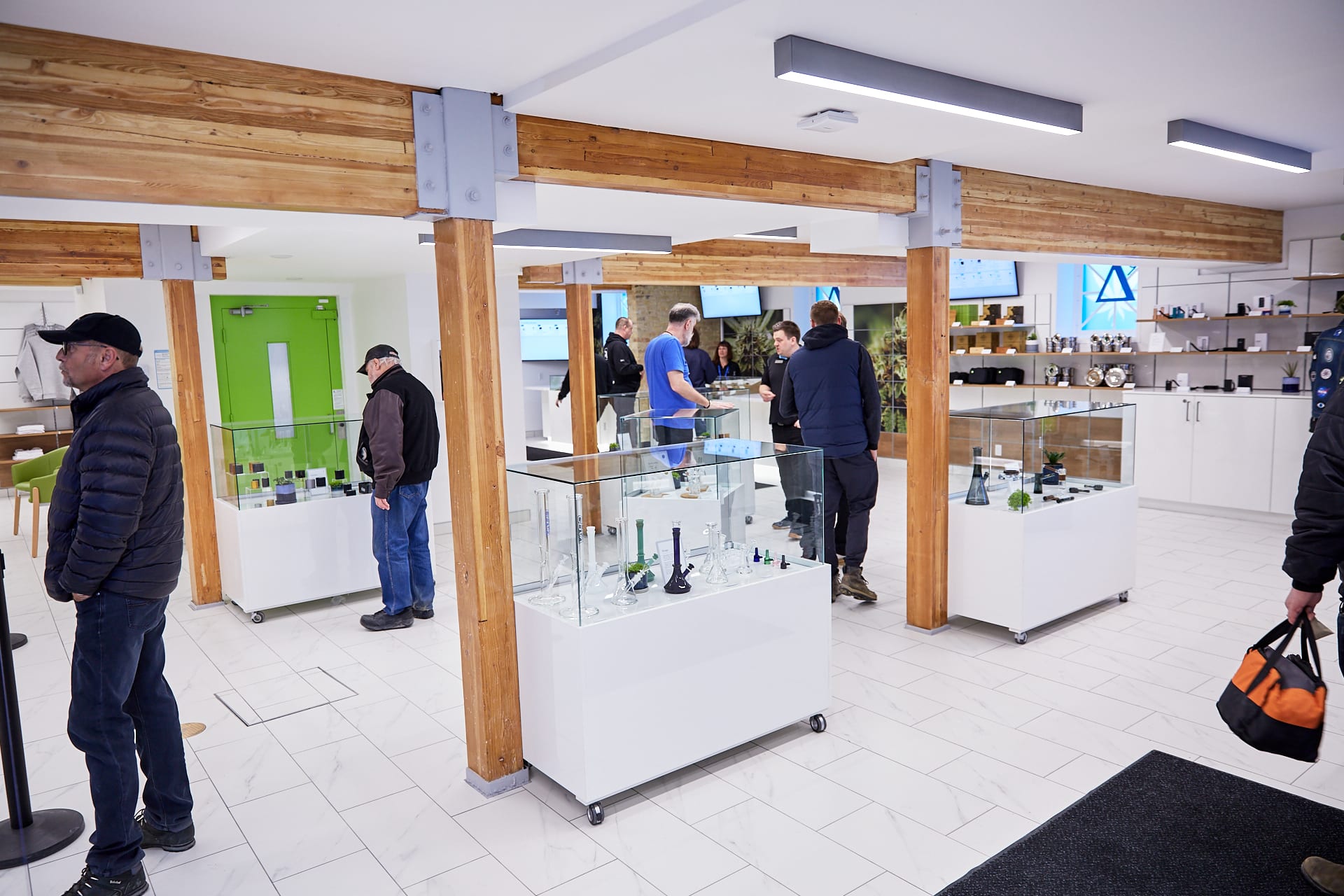
So here’s an interesting question: What are your projected revenues for the next quarter?
We don’t provide formal guidance to the market, particularly in the current situation. I think it would be difficult for any company to assess the impact or potential impact. But what we have been telling people is that we’ve seen no disruption in our production wholesale shipments. On that side of our business, we’ve seen no disruption in our B2B segment or to any related development in that area.
We’ve seen no drop off in retail. If anything we’ve seen increased foot traffic and sales as a result of some of the more recent issues with COVID-19. And we do continue to see growth at our four existing retail stores. So there’s been no negative impact in terms of what to expect from our first quarter numbers. Overall, I think the business is well positioned to continue to produce growth on a quarterly basis into 2020.
For those who aren’t aware, can you describe the B2B component of your business?
When we talk B2B, it’s a reference to our business segment that sells grow pods. We actually sell the grow rooms — the proprietary production platform that we use in our production facilities — we are selling that to third parties.
We also provide consulting and licensing services to get new cannabis businesses licensed, get them up and running: install the standard operating procedures, the grow pod systems, the quality assurance programs. And then, typically, we’re working with those parties on a long term basis. We provide them genetics, and we offer to purchase all of the offtake from those facilities. So it allows us to act as kind of an incubator for these businesses. At the same time, we’re seeing rather significant revenue streams from these construction and consulting activities.
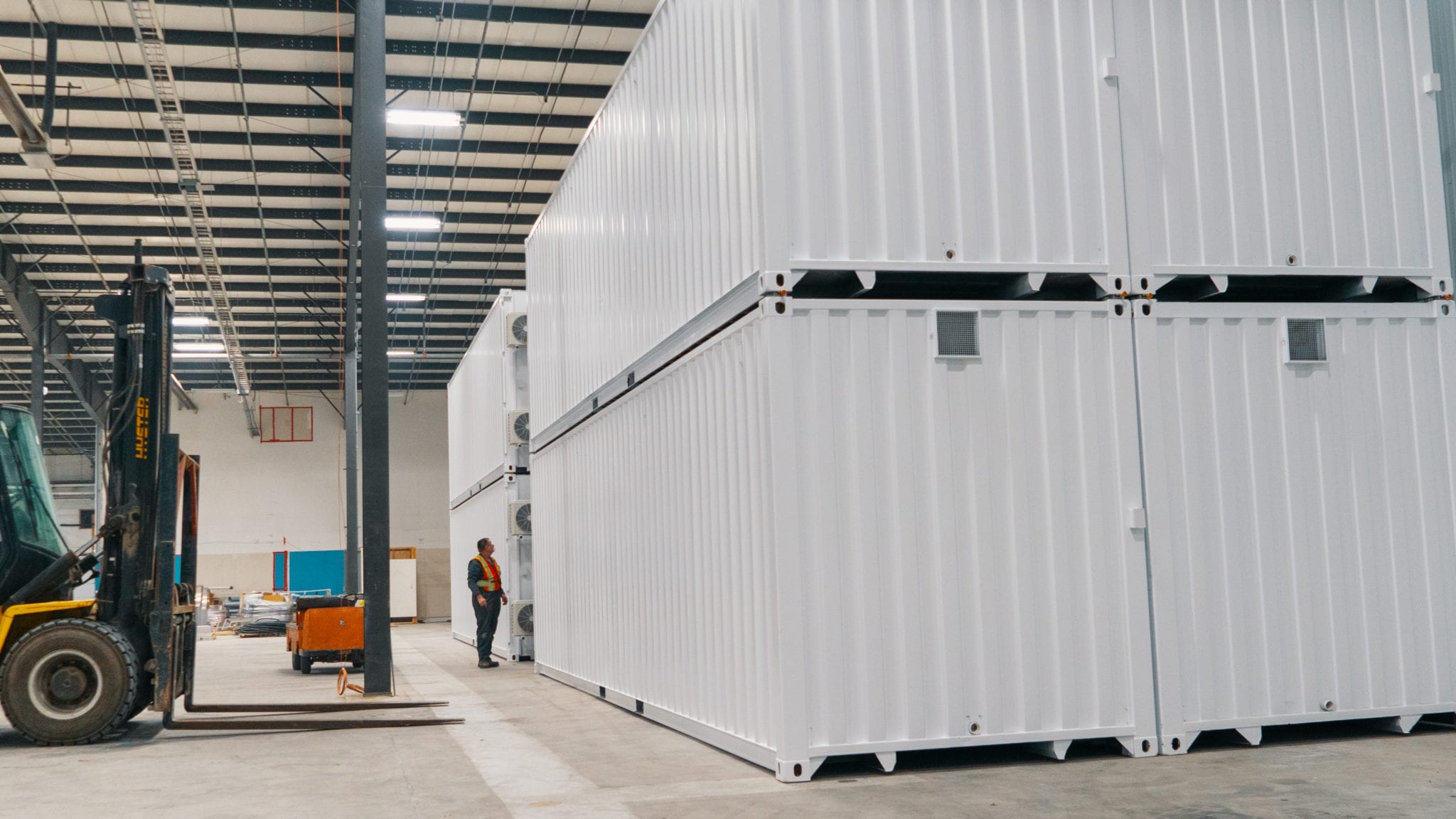
And so you’re actually selling them? Not leasing or renting?
Yeah, we don’t do any lease activities. We don’t consider ourselves necessarily a finance company. Generally, these are just sales of construction or infrastructure equipment. It gives us kind of a unique angle where very few large cannabis operators in the space really have exposure to the more picks and shovels side of the industry.
Particularly as you look at growth into 2020, one avenue for growth of this B2B segment is that we can push this segment, even though we are a TSX issuer restricted from certain activities, in the U.S. This is a business segment that we can take down to the U.S. that we can start to expand and see exposure to these international growth markets, where perhaps we can’t sell pot but we can sell pods.
Okay yeah, I noticed your reports contain expansion plans to add more growth pods and retail locations. Is this something you’re still planning to go ahead with? And to the same degree that you’ve written your report, or is this a day-by-day decision making process?
At this point, a lot of expansion activities are being considered day-by-day. We do have some pending amendments, which we point to as a part of the phase two expansion of our production facilities. Those projects have already been completed. We’re simply pending Health Canada approval. Obviously, as we receive those approvals, we can start to expand into our new purpose-built bottling areas and enjoy a larger expanded perimeter that’s under licence by Health Canada. But beyond that a lot of the expansion of additional grow pod capacity is effectively on hold until we get a little bit more certainty in about the macro-economic climate in light of the virus.
Likewise, with retail stores we have a number that are simply pending regulatory approval to begin opening. But we would obviously weigh store openings versus the risk of operating our retail stores in any specific jurisdiction. It’s kind of day-by-day and listening to the advice of medical professionals. Obviously, for our staff and our customers, health and safety is top of mind if we’re making any of those decisions.
Capital markets have been the most volatile in a century, but on the other side of things, cannabis retail has seen a recent boom. So given this huge contrast here of seeing producers struggle, but retailers cashing in right now, how is how is Delta 9 navigating that peculiar landscape?
Again, I’d speak to the benefits of being diversified. Where you’re seeing a pullback on the production — struggles from a lot of producers in the space — to have a retail segment to lean on for growth has been very important for us.
I mean, we can anticipate that it may reach a point where certain geographies across Canada require producers to close their doors — where they’re not making shipments to retailers, which will obviously put a strain on supply chains across the country. But as a producer that’s vertically integrated, we’ll be uniquely positioned to continue to supply our stores if they’re still open here in Manitoba, where we’ve seen a little bit less than the virus’s impact.
Obviously, I don’t feel that there’s an adequate value being placed on our equity in the capital markets. But we’ve weathered the downturn for the last 12 months in the cannabis space and then more recently across the broader market with a significant pullback in the Dow and the TSX, and the broader markets. Again, to be a company that’s well capitalized, that’s reached positive income and adjusted EBITDA. Now it’s our job to monitor liquidity to ensure there’s sufficient cash on hand to continue operations and weather the storm.
Right? Yeah, I was looking at that in particular. You guys have around $22 million in cash stated in your report.
Yeah I think it was about 22 million in working capital as of the end of year. Again, we haven’t seen any significant of that deterioration through the first quarter given how the company’s now operating at or above profitability. So we’re in as enviable a position as one can be given the broader macroeconomic environment.

How far exactly do you think that $22 million is going to get you and how do you intend to raise capital going forward?
Something that, again, is being considered day-by-day. I mean, we consider that even in a complete shutdown scenario, we still have sufficient cash and access to cash through our existing credit facilities to weather that storm. Now, you know, at that point it’s: ‘How long does it take for us to get the businesses back up and running? What was the impact of any shutdown in terms of inventory or biological asset inventory? What’s the impact of closing stores on top line revenue?’ Things like that.
So I mean, all of these certainly have impacts. That’s where it becomes difficult for us to project out in the future. But we would certainly point to the strength of the balance sheet. There’s a lot of liquidity there. There’s access to capital. I think we’re well positioned in that we are not one of the groups that’s needing to go to equity markets right now, or sourcing more punitive forms of debt or convertible debt.
On the retail side, Delta 9 offers same-day delivery. And again, you say the situation is different obviously in Manitoba than other provinces. But I understand you also have retail in Alberta as well. So what kind of increase in your delivery have you witnessed recently?
Similar. I think our in store traffic is up by probably 50 per cent as well cart sizes increasing in store. We’ve probably seen about 100 per cent increase in our daily delivery and online orders. Note that it’s still a small percent of our overall revenue — maybe about 10 per cent. I mean, it’s certainly material.
Read more: Delta 9 details deal to expand retail to Alberta
I think it’s really obviously a reflection of the people who are staying home — they’re concerned about going out. We’re happy to have that option for people who are not wanting to come in-store. But otherwise in-store we’ve implemented a number of different safety procedures, increased hand sanitation stations. We’re keeping customers about five to six feet away from our staff, at any given time. Our staff are wearing gloves and masks where appropriate. So I think we’re taking every precaution to keep to keep our staff as well as our customers safe in store. But again, I think it’s important to have the option of click-and-collect, same day delivery or mail delivery — if there’s any real disruption of the in-store retail revenue.
That goes right into my next question, which is: During the pandemic, how is Delta 9 ensuring the safety of its employees and its consumers? You’ve touched on the retail side of things, but on the production side what has changed?
On the production side, we’re limiting the number of staff in any single production area at a time, trying to make sure there’s at least four to six feet safe distance between staff.
Of course, on the production side of our business, our staff are always practicing good hand washing as a part of our sanitation program. They’re wearing gloves, they’re wearing face masks. They’re wearing scrubs and personal protective wear that’s washed daily on-site. So, we already have a lot of good hygiene and good production practices in place. But then it’s expanding that out, again, limiting the number of people in an area, limiting long term contact however we can and really trying to put health and safety top of mind, as well as developing contingency plans for what limited operations or shutdowns of operations might look like.
And what kind of plans do you have for your employees?
Initially we’re providing flexibility around sick time, short-term disability etc., where you have staff that are potentially concerned or self-quarantining. Obviously, you need to be flexible in terms of making sure those people can stay home. They’re tapping into sick time, they’re tapping into our short-term disability plans, and they’re tapping into the EI beyond that.
We’re really trying to help wherever we can. We’re certainly seeing initial disruptions, people taking sick time, people returning from international travel that are required to self-quarantine. The company’s cancelled all travel, both international and domestic. We’re encouraging, as I mentioned, head office staff to be working from home, working remote, meetings being held by teleconference, things like that.
So I think we’re taking every safety step we can. We’re trying to maintain operations to the fullest extent. I think the province is making an announcement in 20 minutes, so this may change even by end of day.
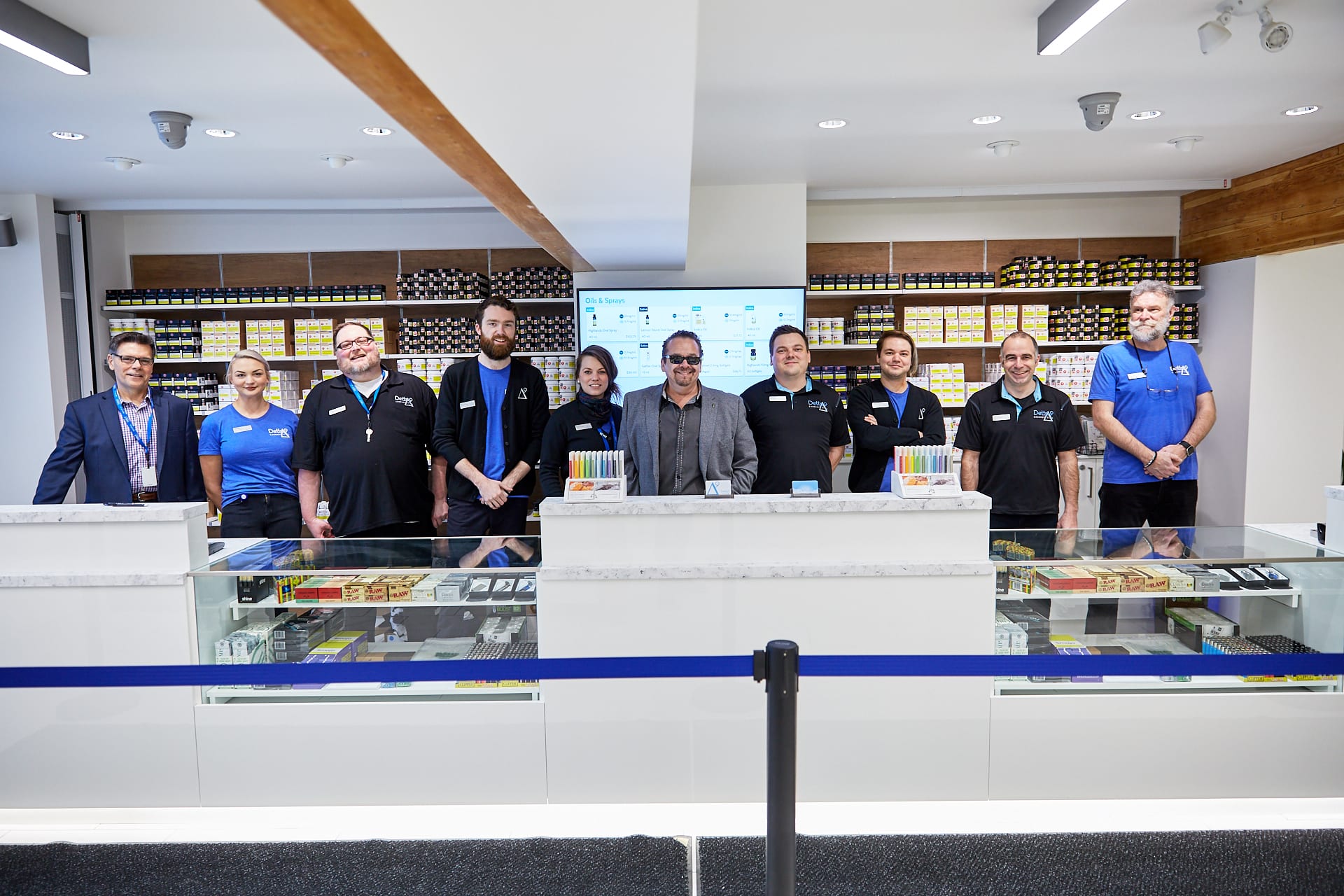
Some cannabis CEOs, especially here in B.C., raised concerns that their companies won’t have access to emergency federal funds, and that dealing with banks has been, in short, a challenge. Is this something you’ve experienced? And how do you think the federal government should be treating cannabis companies?
We’re fairly well positioned. Given our current cash position and operations, it becomes much easier to have these discussions with banks when there’s already existing, untapped credit facilities. To come back and say, ‘Hey, we may need another few million dollar lifeline’ becomes a much easier conversation.
Likewise, when we’re dealing with government, whether that’s FCC, or BDC, or otherwise, it gives us a little bit more flexibility that our business is safer for them to lend to. It has been well-published that the cannabis industry has not been initially included in the $10 billion support package that was released last week from government. I think there’s still a lot of questions for businesses around how to access those lifelines. And obviously, our industry associations have been following up with federal ministers, with the government directly around what a support package that’s cannabis industry-specific should look like.
Read more: Justin Trudeau’s business bailouts gives cannabis the cold shoulder
We’re also in discussions with our provincial government very routinely around what would the impact of a shutdown of any one of our businesses mean — for employees, for the company? How do we weather through this? You know, it’s kind of considering all options, considering contingencies. We’re really trying to do the best that we can to preserve value and continue to operate through these times. But again, this is changing.
But do you think that that cannabis companies should be treated by the federal government like any other company?
Absolutely. I mean, we know the economic impact this industry has in terms of investment, in terms of employment. It’s been incredibly significant for the Canadian economy over the last number of years. Coming out of this, there will be significant opportunity for cannabis companies to enter a new phase of growth. I think governments are certainly cognizant of that and the unfortunate reality is that this situation is going to expedite some of the issues that a lot of players have been running into in terms of access to capital, in terms of their growing concern status as a company.
Companies that were struggling to access capital three months ago and maintain operations are now faced with a public health crisis. So I think that’s going to expedite a number of bankruptcies. You know, companies needing to seek strategic alternatives. But again, out of that I think government will step to the table with support packages for cannabis companies or for good cannabis companies. And then again, there’s no shortage of opportunity coming out of this on the other side.
 You pointed to the fact that obviously you feel like your valuation is a little bit shy of reality. So given everything you’ve said and the uncertainty of markets right now, what’s your general message to the public and especially to the investing public?
You pointed to the fact that obviously you feel like your valuation is a little bit shy of reality. So given everything you’ve said and the uncertainty of markets right now, what’s your general message to the public and especially to the investing public?
We’ve always taken a very long term approach toward creation of shareholder value. Companies are increasingly being judged on their financials, on their operating performance. Cannabis companies through this cycle will start to trade at multiples of revenue, earnings and EBITDA more so than we’ve ever seen. And we will see a de-coupling of share prices from all trading together to capital being allocated towards those that are producing positive financial results.
So, we would obviously point to the first quarterly profit from operations in the company’s history is a very material milestone. We said we would pivot to profitability in 2019. We were able to do that. For us it’s just about getting out there, continuing to execute, continuing to create value, weather the storm. Investors who are getting in at today’s valuation are getting a great entry point into a company that’s going to continue to see growth into the future.
nick@mugglehead.com
@nick_laba

